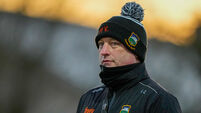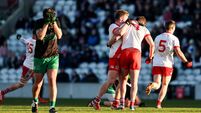'After all these years, Baby John deserves the truth'

The grave of 'Baby John'. His body was found by a farmer on White Strand, Caherciveen in the evening of Sunday, April 14, 1984.
“I am the Kerry Baby” are five words that help define Ireland’s longest-running murder mystery.
Inscribed on his gravestone, they gave voice to a little baby boy who never lived long enough to say them.
















